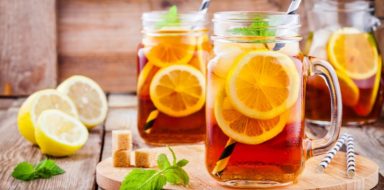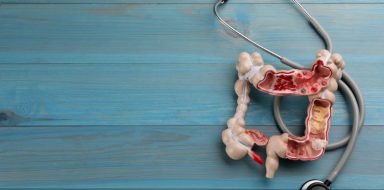How Overactive Bladder and Obesity Are Related
As we get older, our risk of developing bladder problems like urinary incontinence (UI) and overactive bladder (OAB) increases. Although these two conditions are more prevalent in women, they can also occur in men. While there are many risk factors linked to UI and OAB, researchers throughout the world believe there is sufficient evidence to associate obesity with an increased chance of developing UI and OAB. This article will take you through both conditions, the link between overactive bladder and obesity, and how losing weight can help OAB.
What is Overactive Bladder?
Overactive bladder refers to a collection of urinary symptoms. The most prevalent symptom is an abrupt, uncontrolled desire or need to urinate. Some individuals will leak urine when they get this need. Another common symptom is the urge to urinate as many times as possible throughout the day and night. An individual with OAB may feel okay one instant and might immediately feel the need to pass urine the next.
What is Urinary Incontinence?
Urinary incontinence is a common and usually uncomfortable problem where the affected person loses bladder control. People with UI sometimes leak urine when they cough or sneeze. They may also feel a sudden need to pass urine that is so strong such that they do not reach the toilet in time. Although it develops mostly as people age, UI is not an unavoidable effect of aging.
Can Being Overweight Cause Bladder Problems?
People who are overweight are at a greater risk of developing bladder problems, including UI and OAB. They may also experience other lower urinary tract symptoms (LUTS). The excess weight found around the middle section of a person exerts unnecessary pressure and stress on the pelvic floor muscles. This causes the pelvic floor muscles to weaken and sag, resulting in accidental urine leak. What’s more, being overweight may result in type 2 diabetes that harms nerves responsible for bladder control, further contributing to the problem.
Is There a Relationship Between Overactive Bladder and Obesity?
During last year’s American Urological Association annual meeting, Dr. H. Henry Lai of the St. Louis-based Washington University School of Medicine reported that obesity might elevate an individual’s risks for overactive bladder. His study revealed that about 60% of people who were looking for treatment for lower urological problems like OAB and UI were obese. In his study, Dr. Lai identified hypertension and diabetes as other risk factors that may predispose a person to OAB, but these conditions can be a consequence of obesity too. He concluded that obese people had a 1.4-1.70-fold greater risks of OAB or UI.
Can Losing Weight Help OAB?
Weight loss helps OAB because shedding a few pounds in the abdominal section exerts less pressure and stress on the bladder, allowing the muscles to focus their energy towards holding the bladder and pelvic floor. A study available in the New England Journal of Medicine in 2009 shows that women who shed at least three pounds of their body weight had an approximately 28% reduction in their incontinence episodes. So, if a patient does not have any other underlying cause of their urinary symptoms, weight loss can be an effective solution for OAB.
Getting through the holidays with OAB can be overwhelming; follow these eight tips to manage your OAB without sacrificing your holiday spirit.
Can Diet Affect Bladder Control?
Many people who suffer from bladder leakage minimize their fluid consumption to keep the leaks at bay, but this strategy can exacerbate the problem by forming highly concentrated urine that increases the urge to pass urine. Also, drinking inadequate amount of fluids can lead to excessive bacteria growth that can cause serious bladder infections. The best strategy for staying hydrated without trigging UI or OAB symptoms is to consume water gradually throughout the day, rather than consuming large amounts of water when you are incredibly thirsty.
Some drinks and foods are recognized bladder irritants. You should consider removing them from your diet or reduce their intake to boost your bladder function and control. They include:
- Caffeine. This is a common stimulant that speeds up urine production and can intensify feelings of urgency. Avoid, or at least reduce, consumption of coffee and caffeinated drinks. Instead opt for herbal teas.
- Alcohol. This is another popular stimulant that can increase symptoms of urgency. Try to avoid alcoholic drinks. Instead opt for grape juice, apple juice, or cranberry juice.
- Artificial sweeteners. These are proven bladder irritants and controversial for your health, so it is best to avoid them.
- Medications. With caffeine, medication can make UI worse. Carefully read labels and request your doctor for changes to any medicines you take that has caffeine.
- Acidic fruits and juices. These consist of acid that can cause bladder irritation. They include citrus fruits, berries, tomatoes and all tomato-based products. Substitute high-acid fruits with low acid ones like bananas and avocados. Instead of tomatoes, choose red bell pepper or tamarind paste. These two options will give you a perfect tomato-like texture.
- Quit Smoking. Smoking increases your risk for chronic cough that can make your UI and OAB worse.
- Perform Kegel exercises. To do this exercise, press your pelvic floor muscles. Make it seem like you are attempting to block your flow of urine for up to three seconds. Rest for about three seconds and repeat a few times. You can do Kegel exercises while you are standing, sitting and lying down. To get more out of this exercise, be sure to work with a physical therapist that is experienced about pelvic floor exercises.
Other Ways of Controlling Bladder Leakage
In Conclusion
Losing excess weight and avoiding bladder irritants can be an effective remedy for overactive bladder and urinary incontinence. If you weigh 200lbs, shedding 10lbs may lower the number of times you experience bladder leakages per week. In some instances, long-term maintenance of healthy body weight can make the bladder leakages disappear completely.







